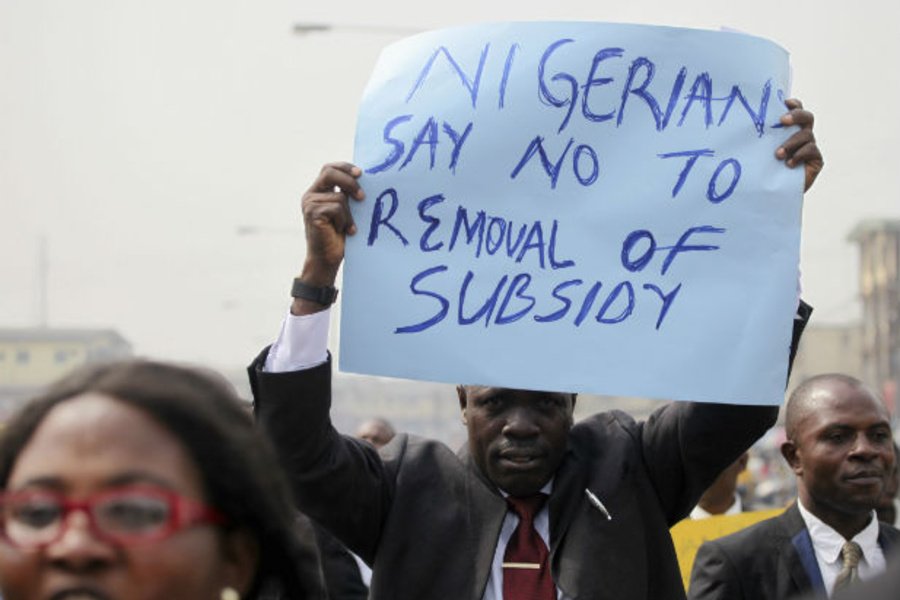Politics
CSO expresses concern over N250b for fuel subsidy, says it is reason FG went into borrowing

Politics
JUST IN: Reps Committee Finally Meets Rivers Sole Administrator After Delays
After a series of delays, the House of Representatives ad hoc committee on Rivers State has finally held its much-anticipated meeting with the Sole Administrator of the state, Retired Vice Admiral Ibok Ete Ibas.
The meeting, which took place in Abuja, comes as the House exercises its constitutional powers to assume the functions of the Rivers State House of Assembly, following the ongoing political crisis in the state.
In his opening remarks, Vice Admiral Ibas apologised for his inability to attend earlier scheduled meetings, citing the need for more time to settle into his new role.
READ ALSO: Ibas Makes First Appearance At NEC Meeting As Rivers Sole Administrator
He told the committee that he is still acclimatising to the demands of his position and appealed for the lawmakers’ understanding as he prepares to provide a detailed briefing.
Shortly after his plea, the session went into a closed-door meeting, with journalists and observers asked to leave.
More to follow………….
Politics
Obi, Kwankwaso Helped Tinubu In 2023, Will Do The Same In 2027, Says Nigerian Activist
Deji Adeyanju, a Nigerian activist and lawyer, has made explosive claims regarding the 2023 presidential election, suggesting that former Labour Party (LP) candidate Peter Obi and New Nigeria Peoples Party (NNPP) leader Rabiu Kwankwaso secretly supported President Bola Tinubu’s campaign.
In a post shared on his 𝕏 page Thursday, Adeyanju contended that Obi, who ran against Tinubu, would likely continue to support the president in future political endeavors.
He expressed certainty that Obi would decline any efforts to form a coalition aimed at challenging Tinubu in the next election.
READ ALSO: Lad Who Stood In Front Of Obi’s Convoy Apprehended For Street Fighting – Police
“I’m 100% convinced that Obi worked for Tinubu in 2023 and will do so again. I might be wrong, but I’m convinced in my mind about this,” Adeyanju wrote.
“Once a businessman, always a businessman. Those still in doubt will see the clear handwriting before 2027. He will refuse to join the coalition,” he continued.
Additionally, Adeyanju accused Kwankwaso of working in favor of Tinubu during the previous election.
He emphasized that for any opposition coalition to succeed in the 2027 race, figures like Obi and former Vice President Atiku Abubakar—another presidential hopeful—must step aside.
“For the coalition to succeed, all the self-centered politicians like Atiku & Obi should promise not to run and allow neutral folks to run against Tinubu,” Adeyanju proposed. “This is how to put the interest of the nation above personal interest,” he added.
The activist went on to criticize the culture surrounding Nigerian politics, describing it as an industry driven by opportunism.
He lamented the presence of “merchants” surrounding top politicians, accusing them of putting personal gain ahead of the country’s well-being. “The biggest industry in Africa is politics,” Adeyanju said.
“And those around popular politicians are all merchants. Once politics is around the corner, they are in business. Con men and women who just want to cash out.”
Politics
Ibas Makes First Appearance At NEC Meeting As Rivers Sole Administrator
Retired Vice Admiral Ibok-Ete Ibas, the Sole Administrator of Rivers State, attended his first National Economic Council (NEC) meeting today at the Presidential Villa in Abuja.
Ibas was appointed to the position by President Bola Tinubu following the suspension of Governor Siminalayi Fubara in March 2025.
READ MORE: Tinubu Swears In Ibas As Rivers Sole Administrator
The NEC meeting, which is being presided over by Vice President Kashim Shettima, gathered a number of state governors and deputy governors from across the 36 states of Nigeria to discuss important national economic issues.
Among the notable figures in attendance was Governor Sheriff Oborevwori of Delta State, who recently defected to the All Progressives Congress.
Governor Oborevwori led the opening prayers at the meeting on the instruction of Vice President Shettima.
Other state governors present included Rev. Fr. Hycinth Alia of Benue State, Abdulrahman Abdulrazak of Kwara, Monday Okpebholo of Edo, and Bassey Otu of Cross River, along with several deputy governors.

















